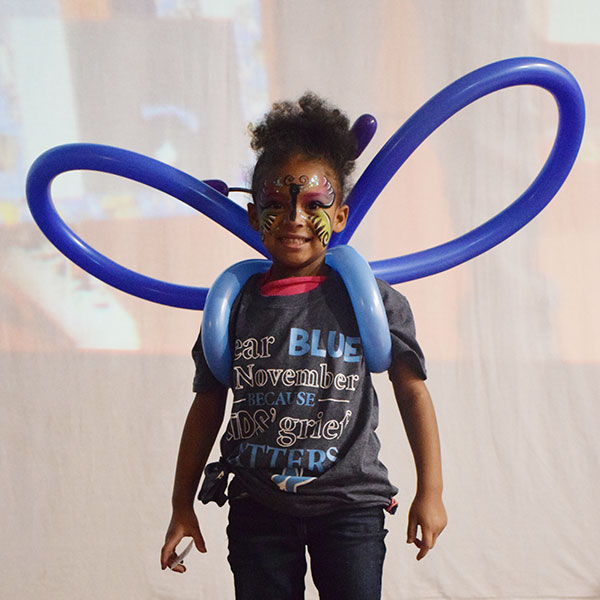Annie’s Hope: ‘Grief is Normal, Natural’
To honor our mission of partnering with donors around the sustainability of nonprofits, YouthBridge awards two Heritage Grants each year to child and youth serving organizations that are regularly supported by our clients. Heritage Grants provide $75,000 in unrestricted support over three years. This month, we highlight 2021 Heritage Grant recipient, Annie’s Hope.
“Death is a part of life, and grief is a natural process. If we can find a positive in the pandemic, it’s that we as a society and as parents have opened up more conversations on death and grief with our children, because we can sometimes forget that they experience it, too,” says Amy Benner LaBelle, Grants and Events Director for Annie’s Hope.
Helping children and families grieve the death of a loved one and helping parents find the right words to use with their children was the motivation behind Annie’s Hope more than 20 years ago. “If we tell children that the person has ‘gone away,’ they will continue to wait for their return, and if we say he or she was ‘lost,’ they will wonder why we aren’t looking for them,” explains LaBelle. “We should use real words – ‘dead’ and ‘died’ – and make sure our kids know that whatever they are feeling is normal and okay. They are capable of understanding and processing more than we may think.”
Today, Annie’s Hope offers support groups, retreats and bereavement programs for children, teens and their families in the St. Louis region free of charge. Through these activities, Annie’s Hope helps children explore their emotions and concerns, learn coping skills and move to a place of peace and hope, says LaBelle. “It’s so critical to attend to a child’s grief because we know from multiple studies how children who do not have the opportunity to mourn can suffer negative effects, such as depression, behavior problems, poor school performance and low self-esteem, sometimes carrying issues into adulthood.”
Bereavement support can be provided at an individual level or through support groups that take place at various locations, including schools, Annie’s Hope offices, a camp area in Dittmer and other sites. “The most impactful thing that happens with the group setting is realizing they’re not alone,” says LaBelle. When they attend Camp Courage in June, for example, kids will look around and see 80 to 90 others in the same boat, she says. “It hits them that everyone there knows what they are feeling and there’s an instant connection. Only those that have gone through the same experience really ‘get it.’”
Isolation is problematic when dealing with grief, she says, so the organization knew they needed to continue programming to the best of their ability during the pandemic. “We made our support groups virtual and built up online resources that people could access anytime, but really we focused on how to get back to in-person as quickly and safely as possible.” All programs returned to normal this past summer. Still, virtual had the benefit of reaching families well outside their usual radius, she says, and may be an option they continue in the future.
LaBelle describes Annie’s Hope – soon to celebrate 24 years – as moving to the “second generation” of its evolution, and says the Heritage Grant from YouthBridge, which includes a comprehensive organization assessment, has come at the ideal time. “We are so thrilled at the prospect of taking a deep dive into every aspect of the organization and developing strategies that will make us stronger and able to reach more children and families.”
If you would like to donate or have any questions about this organization, please contact Allison McDonald.
